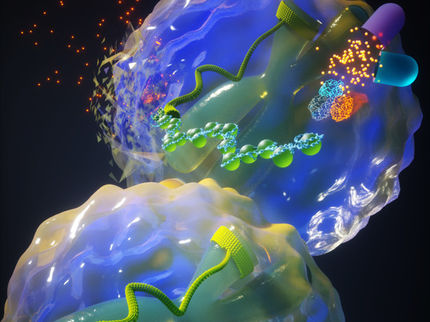Oncomine Key to Prostate Cancer Discovery
Cancer Cell Report Identifies SPINK1 as a New Biomarker for Prostate Cancer
Advertisement
Compendia Bioscience, Inc. announced the central role of their flagship product OncomineTM in the discovery and identification of SPINK1 as a key new therapeutic target and biomarker for prostate cancer. Oncomine is a rapidly growing compendium of nearly 26,000 gene expression and DNA copy number arrays coupled with analysis functions and a web application for data mining and visualization. Comprised of thousands of samples representing every major type of cancer, Oncomine exploits this data for therapeutic target discovery, validation, and prioritization.
Compendia CEO Daniel R. Rhodes, Ph.D., in his continued role as a research investigator at the University of Michigan, led the Oncomine analysis that identified SPINK1 as a candidate oncogene in prostate cancer. Further experimental work by many of the same scientists that previously identified ETS-family gene fusions in prostate cancer using Oncomine led to this discovery.
"We extended an approach called Cancer Outlier Profile Analysis (COPA) that had previously led us to identify ETS-family gene fusions in prostate cancer," said Dr. Rhodes. "We knew from that experience that true oncogenes are likely to appear in COPA results from multiple independent datasets. Therefore, we intentionally looked for genes that had high COPA ranks across multiple datasets and SPINK1 looked interesting. Further Oncomine analysis showed that SPINK1 over-expression was mutually exclusive with ETS-family gene fusion events and was not present in normal prostate tissue. So, we were pretty sure we had found something important."
Published in the current edition of Cancer Cell (Volume 13 Issue 6: June 2008), this study shows that SPINK1 is detectable in the urine and that SPINK1-positive prostate cancers are a particularly aggressive molecular subset of prostate cancer with SPINK1 having a role in cancer invasion.
Most read news
Organizations
Other news from the department science

Get the life science industry in your inbox
By submitting this form you agree that LUMITOS AG will send you the newsletter(s) selected above by email. Your data will not be passed on to third parties. Your data will be stored and processed in accordance with our data protection regulations. LUMITOS may contact you by email for the purpose of advertising or market and opinion surveys. You can revoke your consent at any time without giving reasons to LUMITOS AG, Ernst-Augustin-Str. 2, 12489 Berlin, Germany or by e-mail at revoke@lumitos.com with effect for the future. In addition, each email contains a link to unsubscribe from the corresponding newsletter.

























































